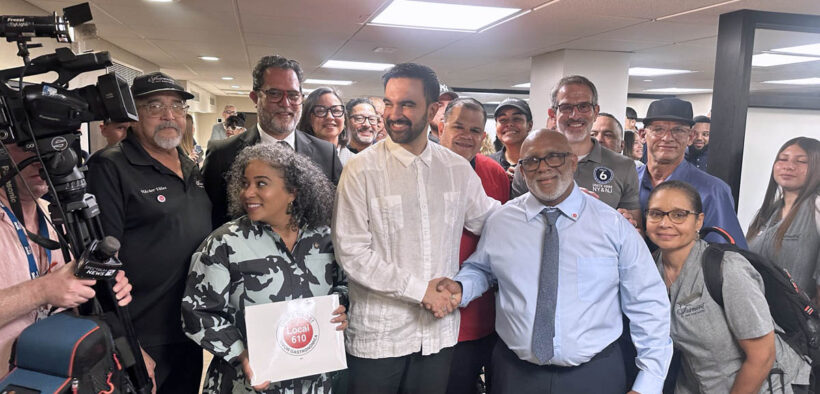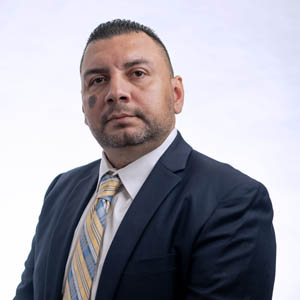Building a ‘socialism-proof’ framework for Puerto Rico’s future

Puerto Rico’s economic future must rest on unshakable principles of fiscal discipline, private enterprise, and the rule of law — independent of election outcomes or shifting political ideologies. In a capitalist society, democracy should allow all ideologies their voice at the ballot box, but it must not permit any ideology — socialist or otherwise — to dismantle the foundation of sound governance.
The recent election of Zohran Mamdani as New York City’s Democratic Socialist mayor signals a rising trend of Democratic Socialist influence in American politics.
As noted in Charles Gasparino’s New York Post article, “Mayor-elect Mamdani reeks of Lenin — but NYC’s wise safeguard against Marxism stands in his way,” New York City established strong fiscal guardrails that ensure transparency and accountability against ideological overreach.
This moment demands a framework that is “socialism-proof” through math and common sense, one that protects constitutional liberties and economic freedom regardless of who holds power.
Learning from New York’s 1975 fiscal crisis
When New York City teetered on the brink of bankruptcy in 1975, the State Legislature enacted the Financial Emergency Act (FEA). This act established a nonpartisan financial control board, imposed balanced budgets under Generally Accepted Accounting Principles (GAAP), and mandated a four-year rolling financial plan reviewed annually.
These structural reforms made it mathematically impossible for any mayor or council, regardless of political leanings, to govern beyond fiscal means. The lesson for Puerto Rico is clear: true reform doesn’t come from elected officials’ ideologies but from binding structures that prevent reckless governance.
Puerto Rico’s constitutional foundation: Unfulfilled potential
Puerto Rico’s Constitution includes a balanced budget clause in Article VI, Section 7, forbidding spending beyond revenue unless offset by new taxes. On paper, this should prevent deficit spending — but in practice, successive administrations circumvented it with massive debt issuance and creative accounting.
This fiscal neglect culminated in the island’s debt crisis and the federal PROMESA law of 2016, which imposed an external Financial Oversight and Management Board (FOMB). As Puerto Rico charts a course forward, it now can internalize these lessons and build a permanent, locally controlled fiscal framework that shields its economy from ideological excess.
A fiscal responsibility framework grounded in reality
Puerto Rico should enact a Fiscal Responsibility and Economic Stability Act inspired by New York’s successful reforms but customized for the island’s legal context. The legislation would require:
• Budgets strictly balanced on GAAP accounting, not political wishful thinking.
• A four-year rolling financial plan, refreshed annually to ensure adaptability.
• Firm limits on deficit borrowing tied to a debt-to-GDP ceiling.
• Automatic “control periods” triggered if spending exceeds constitutional limits.
• Transparent quarterly fiscal reporting and independent audits accessible to the public.
By codifying these rules, Puerto Rico removes fiscal governance from politics. Instead, economic management becomes a permanent, rule-based system that builds investor confidence and fosters sustainable growth.
Enshrining market economy as a constitutional right
Fiscal discipline alone cannot secure Puerto Rico’s future. The Constitution must also declare economic liberty a fundamental right. A proposed market economy clause could state:
“The economic system of Puerto Rico shall be founded upon private property, free enterprise, and competition. The State shall not own, or control means of production except for essential public purposes as defined by law.”
This safeguard would place private enterprise on equal footing with political rights, making radical socialist policies — such as nationalization or state enterprise expansions — subject to heightened legislative or voter approval thresholds. This is not a ban on ideas but a rational safeguard to ensure that any major shifts earn broad-based democratic legitimacy.
Independent guardrails for economic stability
To enforce these principles, Puerto Rico should create a Fiscal and Economic Stability Authority (FESA), a permanent, nonpartisan institution akin to New York’s Financial Control Board. FESA would:
• Certify annual budgets.
• Analyze legislation for fiscal and economic impact.
• Issue binding rulings on policies jeopardizing fiscal discipline or market protections.
• Trigger corrective action or legal review if constitutional boundaries are crossed.
This “central bank” for public finance insulates sound economic management from transient political winds while retaining democratic accountability.
Why business must support these reforms
Investors do not fear elections; they fear uncertainty. Capital flows to places with predictable rules, consistent tax structures, and respect for private initiative. Every political swing that threatens fiscal stability or economic freedom damages Puerto Rico’s reputation in capital markets. A “socialism-proof” framework anchored in law rather than ideology sends a powerful signal that Puerto Rico is a safe, stable place to invest and grow businesses.
Such reforms will lower borrowing costs, unlock private investment, and empower entrepreneurs to make long-term plans with confidence. They also assure both Washington and global markets that Puerto Rico’s fiscal responsibility emerges from its own governance and is no longer imposed externally.
Guardrails, not chains
Building a “socialism-proof” Puerto Rico does not mean stifling democracy. It means designing a system that safeguards liberty even when political ideologies change. Citizens remain free to elect any leaders, socialists included, but no elected official should wield unchecked power to bankrupt the Commonwealth, confiscate property, or dismantle its market foundations.
By embedding fiscal discipline, protecting economic freedom and establishing independent oversight, Puerto Rico can ensure that democracy and economic security coexist.
The island’s next transformation will not be dictated by ideology but secured by smart design. And well-crafted structure, grounded in math and common sense, endures.

Antonio Santos is a hospitality and tourism professional with more than 30 years of experience in Puerto Rico’s service industry. In 2024, he ran for the Puerto Rico House of Representatives representing San Juan’s District 1 under the Conservative Party Proyecto Dignidad. He advocates for entrepreneurship and economic development based on small-government principles and sustainable growth.




